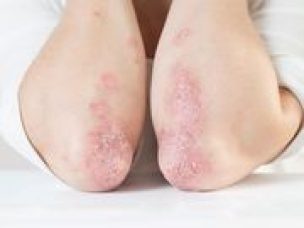OBGYN & Women’s Health
Risk for Ectopic Pregnancy Increased for Women With Psoriasis
Women with psoriasis have a significantly increased risk for ectopic pregnancy (EP), which is highest for those with moderate-to-severe psoriasis, according to a study published in the June issue of JAAD International. Cæcilie Bachdal Johansen, M.D., from the University of Copenhagen in Denmark, and colleagues examined the association between psoriasis and adverse pregnancy outcomes (APOs)...
Disparities in Race and Treatment Venues in Breast Cancer Care
The place of care—whether a hospital or a doctor’s office—may have a profound impact on the quality and type of breast cancer care, as well as the reported side effects. One study reports disparities in breast cancer treatments and side effects between African American and White women. White women experience breast cancer more frequently, but...
Distinct Epigenetic Profiles in Younger African American Triple-Negative Breast Cancer Patients
Clinical disparities are apparent in aggressive triple-negative breast cancer based on age and ethnicity. A recent study identifies unique epigenetic differences in triple-negative breast cancer tumors among younger African American women, suggesting potential clinical implications for diagnostics and treatment approaches. Younger African American women with triple-negative breast cancer exhibit distinct DNA methylation profiles. The unique...
MicroRNA's Role in Breast Cancer Tumor Growth and Mortality Disparities
Research reveals potential biological factors contributing to racial disparities in breast cancer mortality rates. MicroRNA-510-5p’s interaction with the scaffolding protein caveolin-1, specifically, could drive aggressive tumor growth and highlight potential reasons behind racial disparities in breast cancer outcomes. miR-510-5p’s regulation of caveolin-1 in fibroblasts potentially fuels aggressive tumor growth. Black women with breast cancer show...
Impact of HIV Infection on Precancerous Cervical Lesions: A Meta-Analysis
Researchers explored the intricate relationship between HIV infection in Ethiopian women and the development of precancerous cervical lesions, addressing existing inconsistencies in the literature, with the goal of determining the true impact of HIV on the risk of precancerous cervical lesions in this population. Some studies hint at a significant link between HIV and pre-cancerous...
Air Pollution Exposure Increases Risk for Postpartum Depression
Both ozone and particulate matter exposures during pregnancy and in postpartum period tied to increased risk Long-term exposure to air pollution, during pregnancy and after, is associated with higher postpartum depression (PPD) risk, according to a study published online Oct. 18 in JAMA Network Open. Yi Sun, Ph.D., from Peking Union Medical College in Beijing, and...
Association of Menopausal Vasomotor Symptom Severity With Sleep and Work Impairments
Higher severity of vasomotor symptoms was associated with greater sleep disturbance, worse quality of sleep, more sleep-related impairment, and disturbances in work productivity and daytime activities in a new study. Vasomotor symptoms in postmenopausal women frequently lead to sleep disturbances and impairment of daytime activities. The new-onset sleep disturbances and daytime hot flashes are related...
Efficacy and Usability of Intravaginal Hormone Replacement Ring in Postmenopausal Women
The DARE-HRT1 intravaginal ring effectively decreases vaginal pH and the percentage of parabasal cells, supporting the efficacy of DARE-HRT1A in genitourinary syndrome of menopause, according to a new study. Vasomotor symptoms, including night sweats and hot flashes, as well as genitourinary symptoms, are commonly experienced by menopausal women. DARE-HRT1 is an intravaginal ring (IVR) that...
Neurokinin 1/3 Receptor Antagonists for Menopausal Women
A systematic review reported moderate evidence supporting the role of neurokinin 1/3 receptor antagonists in limiting the severity and frequency of hot flashes experienced by postmenopausal women. The majority of postmenopausal women experience vasomotor symptoms that include hot flashes and night sweats. However, there is limited evidence on the efficacy of non-hormonal therapies in managing...
More Medical News














